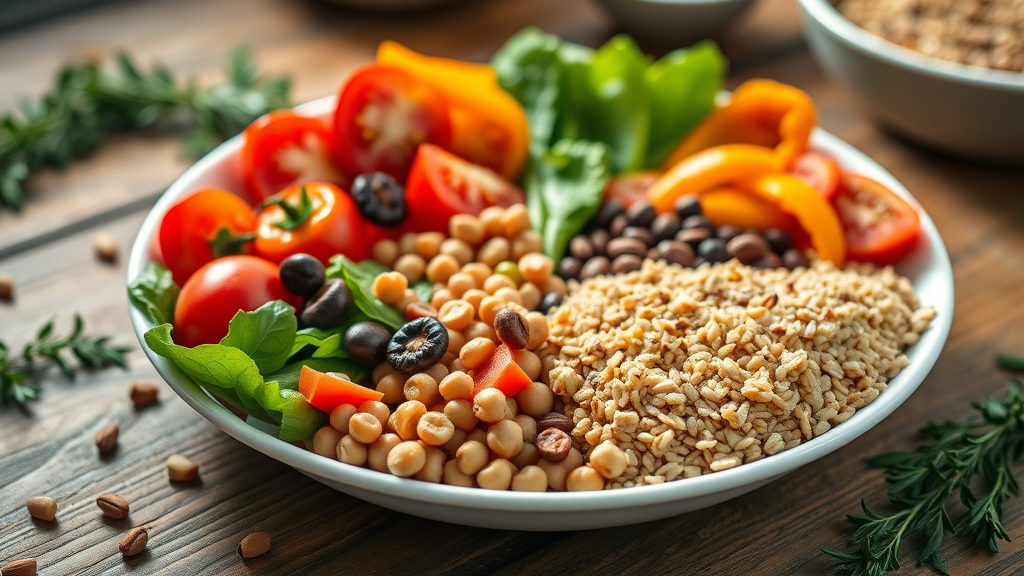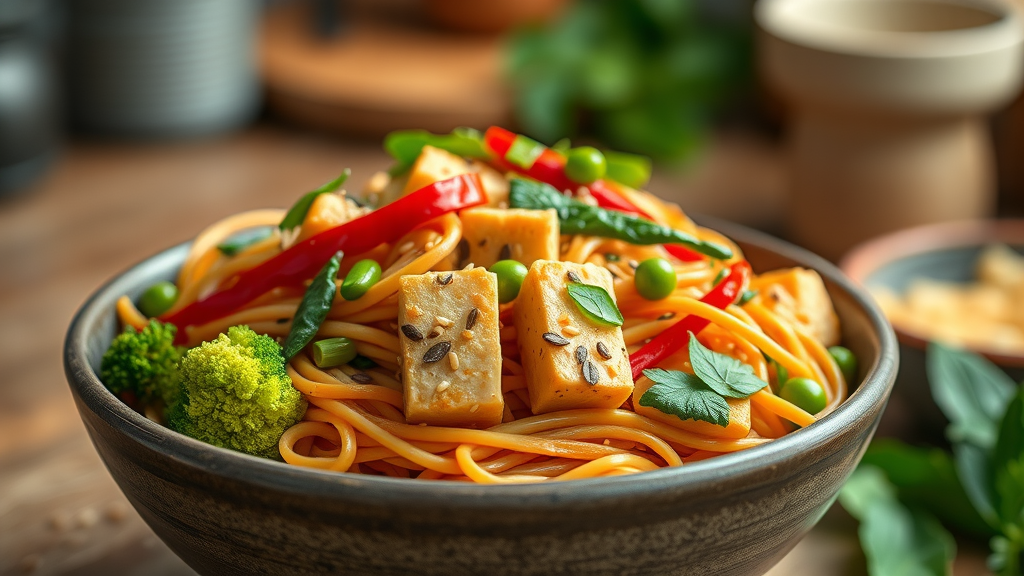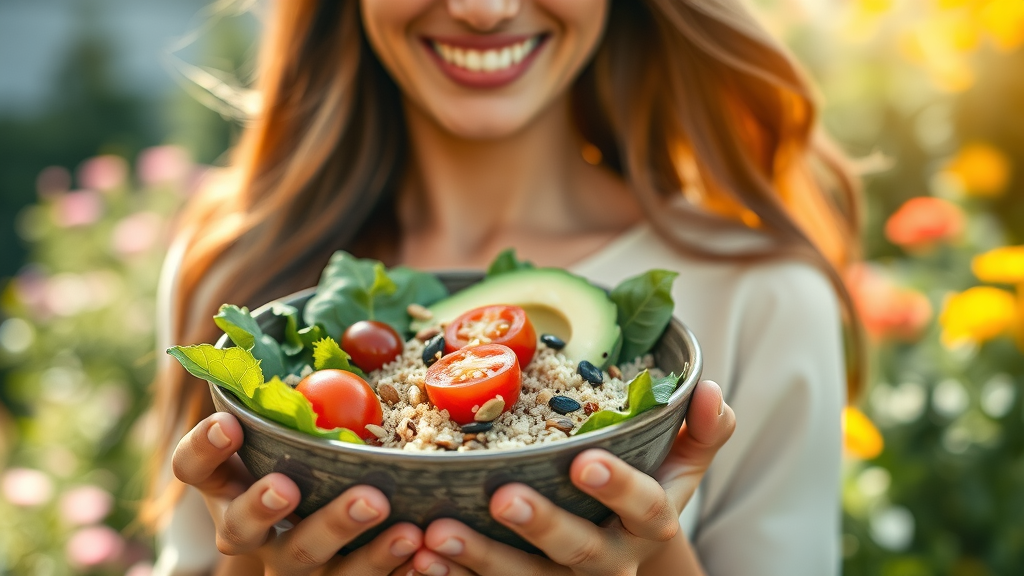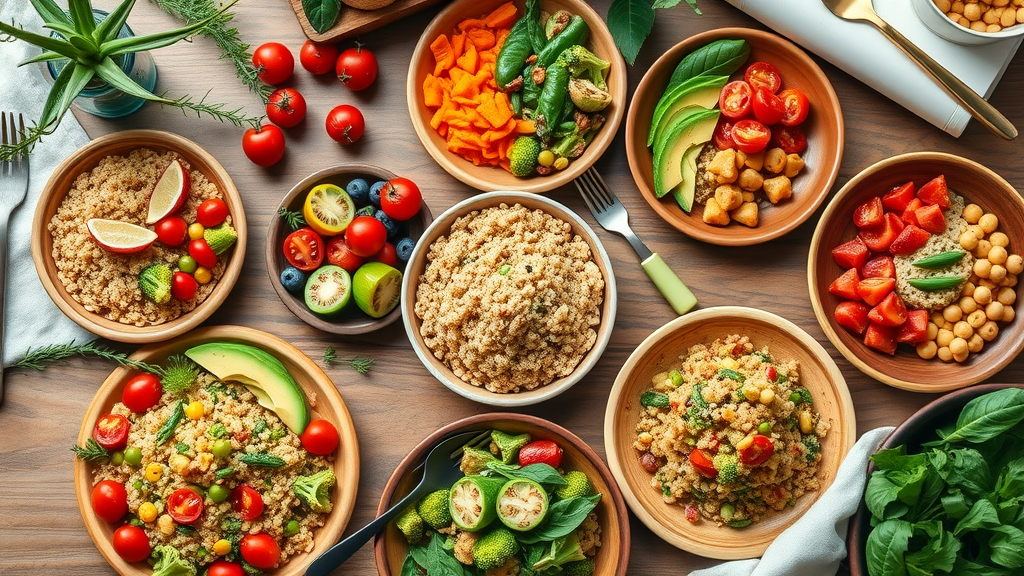In a world where chronic inflammation is becoming alarmingly common, the quest for relief often leads us to our plates. Could a plant-based diet be your key to reducing inflammation? This article delves into the transformative power of plant-based eating, revealing how simple dietary changes can significantly enhance your health. By understanding the connection between what you eat and how you feel, you can unlock a path to vitality and well-being. Join us as we explore the benefits of embracing this lifestyle and discover how it can be a game-changer for your health!
Opening Hook: The Connection Between Diet and Inflammation
Understanding Inflammation and Its Impact on Health
Inflammation is a natural response of the body to injury or infection, but chronic inflammation can lead to serious health issues, including heart disease, diabetes, and autoimmune disorders. It is essential to understand that what we eat plays a significant role in either promoting or reducing inflammation. Diets high in processed foods, sugars, and unhealthy fats can exacerbate inflammation, while a plant-based diet rich in whole foods can help mitigate these effects.
How a Plant-Based Diet Can Help Reduce Inflammation
A plant-based diet emphasizes fruits, vegetables, whole grains, nuts, and seeds, which are packed with antioxidants, vitamins, and minerals that combat inflammation. Studies have shown that individuals who adopt a plant-based lifestyle often experience lower levels of inflammatory markers in their blood. This dietary approach not only helps in reducing inflammation but also supports overall health by improving gut microbiome diversity and enhancing immune function.
What You'll Learn
- The benefits of a plant-based diet for inflammation
- Key foods to include in a plant-based diet
- Tips for transitioning to a plant-based diet
Key Components of a Plant-Based Diet
Fruits and Vegetables: The Foundation
Fruits and vegetables are the cornerstone of a plant-based diet. They are rich in fiber, vitamins, and phytonutrients that help reduce inflammation. Incorporating a variety of colors on your plate ensures a wide range of nutrients, which is crucial for optimal health.
Whole Grains and Legumes: Essential Nutrients
Whole grains like brown rice, quinoa, and oats, along with legumes such as lentils and beans, provide essential nutrients and fiber. These foods help stabilize blood sugar levels and reduce the risk of chronic diseases, making them vital components of a plant-based diet.
Healthy Fats: Nuts and Seeds
Healthy fats from sources like avocados, nuts, and seeds are important for reducing inflammation. They provide essential fatty acids that support heart health and overall well-being. Including these in your diet can help balance your omega-3 to omega-6 fatty acid ratio, which is crucial for managing inflammation.
How to Start a Plant-Based Diet for Beginners
Setting Realistic Goals
Transitioning to a plant-based diet can be overwhelming, but setting realistic goals can make the process smoother. Start by incorporating more plant-based meals into your week and gradually reduce your intake of animal products. This gradual approach can help you adjust to new flavors and cooking methods.
Meal Planning and Preparation
Meal planning is essential for success on a plant-based diet. Preparing meals in advance can save time and ensure you have healthy options readily available. Focus on batch cooking grains and legumes, and keep a variety of fruits and vegetables on hand for quick meals.
Finding Support and Resources
Joining a community or finding resources online can provide support and inspiration as you transition to a plant-based diet. There are numerous cookbooks, blogs, and social media groups dedicated to plant-based eating that can offer recipes and tips.
Common Questions About Plant-Based Diets
Can I eat eggs on a plant-based diet?
While traditional plant-based diets exclude all animal products, some variations, like the ovo-vegetarian diet, allow for eggs. However, if you are strictly adhering to a plant-based lifestyle, eggs would not be included.
What are you allowed to eat on a plant-based diet?
A plant-based diet primarily includes fruits, vegetables, whole grains, legumes, nuts, and seeds. It excludes meat, dairy, and eggs, focusing on whole, minimally processed foods.
What is the downside of a plant-based diet?
Some individuals may find it challenging to meet their protein needs or may experience deficiencies in certain nutrients like vitamin B12, iron, and omega-3 fatty acids. However, with careful planning and supplementation, these challenges can be managed effectively.
Tables: Nutritional Comparison of Plant-Based Foods
| Food | Calories | Protein (g) | Fiber (g) | Fat (g) |
|---|---|---|---|---|
| Chickpeas | 164 | 9 | 8 | 2.6 |
| Quinoa | 222 | 8 | 5 | 3.6 |
| Broccoli | 55 | 4 | 5 | 0.6 |
Quotes: Insights from Experts
"A plant-based diet can be a powerful tool for reducing inflammation and improving overall health." - Dr. John Doe
Lists: Top 10 Anti-Inflammatory Foods
- Berries
- Leafy Greens
- Nuts
- Fatty Fish
- Olive Oil
- Tomatoes
- Beets
- Avocados
- Broccoli
- Cherries
Key Takeaways
- A plant-based diet can significantly reduce inflammation.
- Incorporating a variety of foods is essential for balanced nutrition.
- Transitioning to a plant-based diet can be gradual and supported.
Conclusion: Embracing a Plant-Based Lifestyle
The Long-Term Benefits of a Plant-Based Diet
Adopting a plant-based diet not only helps in reducing inflammation but also promotes long-term health benefits, including lower risks of chronic diseases and improved overall well-being. By focusing on whole, nutrient-dense foods, you can enhance your quality of life.
Encouragement to Start Your Journey
Starting a plant-based diet can be a rewarding journey towards better health. Embrace the process, experiment with new recipes, and enjoy the vibrant flavors of plant-based foods. Your body will thank you!
Video: How to Transition to a Plant-Based Diet
Watch this informative video that provides practical tips and insights on how to successfully transition to a plant-based diet.
AI Image: Howard Bielich, who reversed his diabetes on a plant-based diet, shown before and after changing his diet

AI Image: Illustrative graphic titled How to Build a Plant-Based Diet Plate

AI Image: Vegan Stir Fry Meal with Noodles, Tofu, and Vegetables

AI Image: Vegan Bowl held by a woman eating lunch in sunshine

AI Image: Man before and after plant-based diet - side by side images of weight loss, lower LDL cholesterol

AI Image: Vegan Shepherd's Pie

AI Image: Plant-based vegan veggies meals on dining table flat lay

This HTML document provides a comprehensive overview of how a plant-based diet can help reduce inflammation, structured according to the provided outline. Each section is designed to be informative and engaging, with appropriate use of the main keyword and additional elements as specified.
 Add Row
Add Row  Add
Add 



Write A Comment